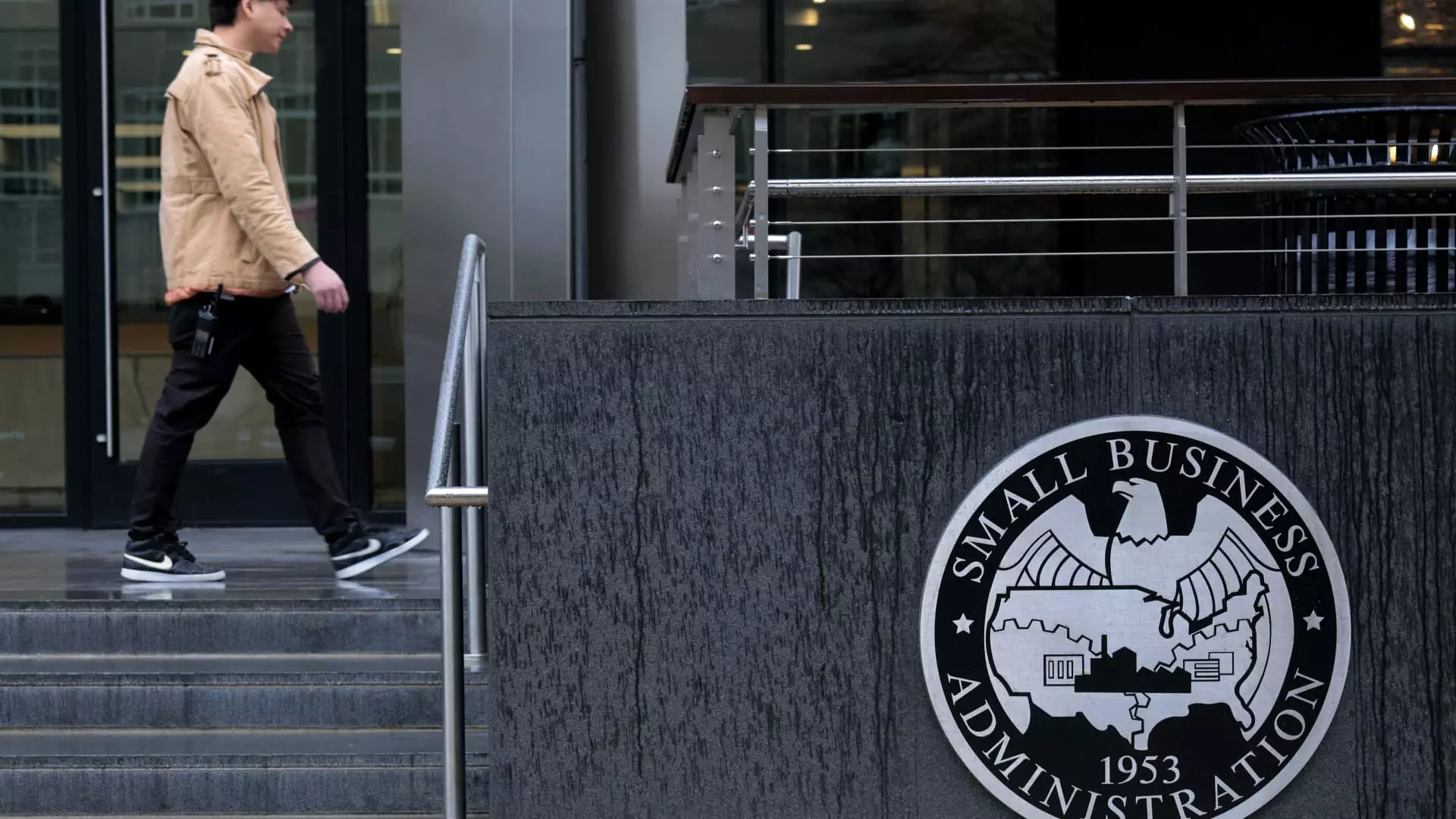In a recent turn of events, federal judge Myong J. Joun has intervened in President Trump’s contentious plan to shuffle over $1.6 trillion in student loans from the U.S. Department of Education to the Small Business Administration (SBA). This political maneuver, which some may call reckless, was aimed at reshaping the management of federal student loans while risking significant unpreparedness and inefficiency. Joun’s preliminary injunction serves not just to maintain the status quo, but also highlights the precarious foundations upon which this plan was built.
The Trump administration made bold proclamations regarding their intentions. Trump confidently indicated that the SBA was “all set for it,” implying that the transition would be frictionless. However, this oversimplified viewpoint fails to recognize the complexities involved in such a massive operational shift. The reality is that the SBA lacks relevant experience in managing student loans. This raised immediate alarms among consumer advocates who understand what happens when a governmental agency pivots into an area devoid of expertise.
Fearing Risk and Confusion
Critics of the proposal are right to express profound concern over potential chaos in the handling of millions of student loan accounts. Madi Biedermann, a deputy assistant secretary at the Department of Education, quickly condemned the ruling by labeling the judge as a “far-left” authority. This kind of rhetoric illustrates a dangerous trend in American politics where legislative criticism is often dismissed as bias rather than addressing valid concerns. The reality of the matter is that some of the severe issues related to data management and borrower privacy stem from less complex transitions, like those between loan servicers.
When we talk about transferring management of student loans, we delve into a bureaucratic labyrinth rife with complexities. The fear isn’t merely about operational mishaps but extends into serious violations of borrowers’ rights and benefits. This concern echoes sentiments from Sarah Sattelmeyer at New America, who emphasizes the detrimental impacts this could have on actual students reliant on these essential educational programs and protections.
The Legal Tornado Waiting to Happen
Repercussions of this misguided initiative could potentially elevate to a legal cyclone if errors were to arise during the transition phase. Can we afford to overlook the possibility that such chaos might not only generate confusion for borrowers but could undermine the very programs designed to uplift them? It’s troubling to consider how a disjointed system might affect allocation of crucial benefits like Public Service Loan Forgiveness—a program intended to ease the burdens on those serving in public sectors.
From the lens of a politically charged landscape, it becomes worrying when actions appear subjugated to a political agenda rather than grounded in the welfare of students and borrowers. The implications of Trump’s attempt to shift this colossal portfolio are far-reaching and, quite frankly, reckless. Experts like Mark Kantrowitz have rightly pointed out that any real movement of this magnitude would require a Congressional act; yet, the administration’s haste reflects an alarming disregard for such legislative oversight.
A Misplaced Vision for Efficiency
Proponents of the shift tout efficiency as their primary motivation, yet they rarely redefine the meaning of “efficiency” in the context of student loans. Efficiency should not come at the expense of quality of service. The implicit assumption that the SBA could somehow streamline an intricate landscape of loans demonstrates a spectacular level of ignorance about how student lending operates. The risk of diminishing resources, exemplified by the SBA’s announcement to reduce its staff by 43%, merely compounds the issues at hand. When it comes to managing loans that directly impact the lives and futures of millions, mismanagement is not just an inconvenience—it is transformative in the worst way for those striving to better themselves through education.
In a country striving toward democratic values and enhanced educational access, placing the management of student loans in the hands of an unprepared agency that lacks both experience and resources invites skepticism, if not outright condemnation. It’s imperative for our leadership to reflect on the potential repercussions of their actions, where the beneficiaries are often the very citizens they claim to champion. In light of this, it’s crucial we focus on creating a system that genuinely serves students rather than a politics-driven agenda that threatens to sabotage the avenues of opportunity for many.

